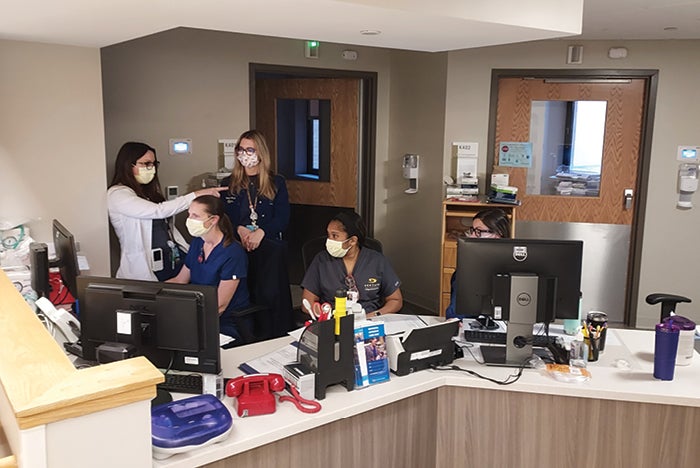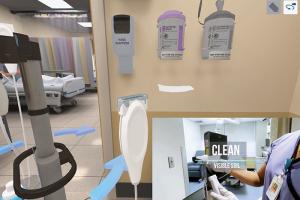NICU designed for a peaceful welcome

Nurse call alarms tied directly to nurses’ phones allow them to respond more quickly while creating a quieter environment.
Photo courtesy of Sentara Norfolk General Hospital
The efficiency of a neonatal intensive care unit (NICU) can be an integral part of an infant patient’s wellbeing, which is why Sentara Norfolk (Va.) General Hospital moved its NICU from a crowded ward space into a larger, brighter and more private layout.
It also has made strides in updating its technology to help nurses streamline patient care. Now 57 beds instead of 47, the unit is located in the hospital’s Kaufman wing on a converted medical-surgical floor.
All patient telemetry is monitored remotely at seven nurses stations throughout the unit as well as at the bedside. The new alerting technology is tied directly to nurses’ wireless phones so they can receive and respond to alarms more quickly. Having alarms tied to the nurses’ phones also helps to provide a more restful environment. They offer a quieter environment with fewer sounds of alarms, which reduces over-stimulation.
In addition to the nurse call updates, the Level III NICU has ventilator capacity for every bed and four isolation rooms when needed.
Private rooms have sleep sofas for parents. They also offer greater opportunities for mother-baby bonding and for staff to partner with parents to console babies recovering from neonatal opioid withdrawal syndrome
“Our facility is now equal to the level of care that we provide,” says Christina Zimmer, R.N., NICU manager. “Our new NICU is a leap forward in clinical excellence and the patient-family experience,” she concludes.




